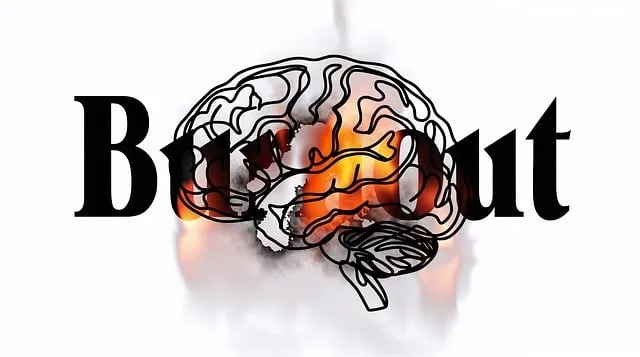Englewood Kaiser Permanente's behavioral health services promote well-being through the RFM model—a structured approach to building mental resilience. By identifying risks, teaching self-care and mindfulness, and integrating these skills into therapy, they empower individuals to thrive despite challenges. Positive reviews highlight successful strategies, including Conflict Resolution Techniques, that enhance mental well-being, prevent burnout, and improve job satisfaction, as showcased by engaging Englewood Kaiser Permanente behavioral health services reviews.
Resilience is a vital component of mental well-being, especially in today’s fast-paced world. This article explores an effective framework, RFM (Resources, Factors, and Moments), for building resilience, with a particular focus on its application within behavioral health services. We provide a comprehensive guide to implementing resilience exercises and highlight the Englewood Kaiser Permanente Behavioral Health Services reviews as case studies demonstrating successful best practices. Discover how these strategies can enhance clients’ coping mechanisms and overall well-being.
- Understanding RFM and Its Role in Resilience Building
- Implementing Resilience Exercises: A Step-by-Step Guide for Behavioral Health Services
- Englewood Kaiser Permanente Behavioral Health Services Reviews: Case Studies and Best Practices
Understanding RFM and Its Role in Resilience Building

Resilience is a vital component of overall well-being, especially in today’s fast-paced and often stressful world. At Englewood Kaiser Permanente behavioral health services, we recognize the importance of fostering resilience among our clients. One effective framework that guides this process is the RFM model—a powerful tool for building mental fortitude.
RFM stands for Risk, Resilience, and Mindset, and it offers a structured approach to understanding and enhancing an individual’s ability to cope with challenges. By identifying risks and implementing strategies to build resilience, professionals in behavioral health can empower clients to navigate life’s storms. This includes encouraging the development of a robust self-care routine (a key component for better mental health) and integrating mind over matter principles to reframe negative thoughts. For instance, engaging in regular physical activity, practicing mindfulness techniques, and fostering social connections are all part of the risk management planning process, ensuring our clients have the tools they need to thrive despite adversity—as evidenced by numerous Englewood Kaiser Permanente behavioral health services reviews.
Implementing Resilience Exercises: A Step-by-Step Guide for Behavioral Health Services

Implementing resilience exercises is a powerful strategy for behavioral health services, like those offered by Englewood Kaiser Permanente, to empower individuals and foster well-being. Here’s a simple step-by-step guide tailored for behavioral health professionals aiming to integrate these practices into their services.
Begin by identifying the specific needs of your client population. Are they facing chronic stress, trauma, or coping with mental health challenges? Different resilience exercises cater to various issues. For instance, mindfulness meditation can be a powerful tool for stress reduction methods, encouraging clients to focus on the present moment and cultivate positive thinking. On the other hand, cognitive reframing techniques help individuals challenge negative thought patterns and develop more adaptive perspectives. Once tailored to your audience’s needs, incorporate these exercises into therapy sessions or offer them as standalone workshops. Ensure that healthcare provider cultural competency training is a priority, allowing for sensitive and effective delivery. By regularly practicing and teaching these skills, behavioral health services can enable clients to navigate life’s challenges with enhanced resilience.
Englewood Kaiser Permanente Behavioral Health Services Reviews: Case Studies and Best Practices

The Englewood Kaiser Permanente behavioral health services reviews serve as a rich source of insights and best practices for implementing RFM (Resilience, Flexibility, and Mastery) exercises in healthcare settings. These case studies highlight successful strategies that have positively impacted patients’ mental well-being and healthcare provider resilience, particularly in navigating challenging situations like burnout and depression prevention.
Through these reviews, it’s evident that integrating Conflict Resolution Techniques into RFM programs has been a game-changer. Healthcare providers now employ these techniques to foster better communication among team members and with patients, reducing conflicts and enhancing overall work satisfaction. Additionally, the case studies underscore the importance of tailoring resilience-building exercises to address specific concerns like burnout prevention strategies for healthcare providers, ensuring that support measures are both relevant and effective in promoting a healthier work environment.
The implementation of RFM (Resilience, Flexibility, and Mastery) exercises, as demonstrated through the case studies of Englewood Kaiser Permanente Behavioral Health Services, highlights the power of integrating resilience-building into healthcare practices. These strategies not only empower individuals to navigate life’s challenges but also foster a sense of control and well-being. By following the step-by-step guide provided, behavioral health services can effectively incorporate RFM techniques, leading to improved patient outcomes and enhanced service delivery, as evidenced by the positive Englewood Kaiser Permanente reviews.






